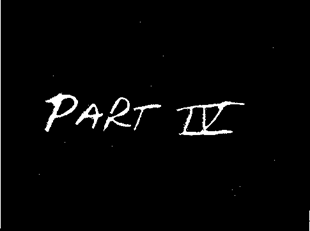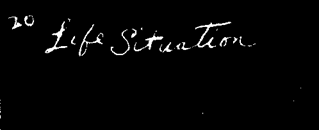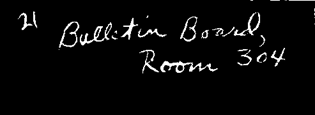
CATEGORIES:
BiologyChemistryConstructionCultureEcologyEconomyElectronicsFinanceGeographyHistoryInformaticsLawMathematicsMechanicsMedicineOtherPedagogyPhilosophyPhysicsPolicyPsychologySociologySportTourism
The Greek Underground
english 33 SS
ANSWER BRIEFLY:
WHY DO WE STUDY THE MYTHS AND THE ODYSSEY?
Because we want to talk like cultured people. At a party how would you like it if some one mentioned a Greek God and you didn't know him. You would be embarrased.

We study myths like Orpheum & his girl friend because it takes place in the Greek Underground. We want to know how our civilization got that way.

Myths are everywhere. Many everyday things like thunder are based on myths. It helps increase our vocabulery in words like Volcanno and By Jove! and to gain experience for future behavior.

The reason we study it is because it shows the kind of writting they went in for in days of Yore.
If this isn't the right answer well I don't know.

The Odessye I've just read helped me an awful lot in my life.

We study myths to learn what it was like to live in the golden age with all the killings.

I'm sure there are many reasons why we study these things but I missed it due to absence. I brought a note.

We study myths so we may comprehend in a superior fashion the origines of many idiocyncracies of our language throughout the decades, constant references to mythologic occurances have spawned such sparkling gems as Jumping Jupiter. By acquaintance with sundry gods and their female counterparts one might discover the birthplaces of such phrases of which we speak.

Diana ruled the moon and fell in love once with a mortal and because of its outcome she never again did so.

If it wasnt for Myths where would Shakesper be today?

Well, for students going to colledge even if they
don't go to colledge everybody needs a certain amount of literature in their backround.

To me the "Odyssey" was just another Ethan Frome or Silas Marner.

It's hard to avoid reading because every wheres we go reading is there.

My own opinion is that I hated the Odessy.

I dont know why we read them but I can tell about it. Pyramid and Thisbe are next door neighbors who like Romeo and Juliette were caused to die by their parents. They saw each other thru a hole in the wall. After a while they couldnt stand it and decided not to meet by the hole any more. So they met by a tree. Thisbe runs away at the sight of a lady lion who's mouth is dripping blood. She dropped a clothe which the lady lion only picked up and thats all. Pyramid walks over and sees the clothe full of blood. He became agrieved and slewed himself. She then walks over and seeing her lover laying on the ground she couldnt stand the sight of him and likewise slewed herself. The blood of them both joined and changed the white flower to purple. How beautiful is love.

It developes our
(not finished)
We drove deeply into the Odessey to get what we can out of it. I think it's valuable to us. It's very difficult to understand the English of before.

Mythology is studied in the school system because most of us come from it.

My opinion about the Oddysey is ridiculous. I don't want to hear about some one's troubles.

The reason we study mythology is to gain tolerance for others even if they don't deserve it.

I didn't know we'd have a quizz on it so didn't study for it, but I imagine we read it to be a round person.

What you may call it felt that the people of the earth should have fire and he stole it from Ollympus and took it to earth. He was then punished by being tied to a mountain top and have his liver eaten out every day by a Vultur.

Once a person studies myth's they look on life a little different. I know I do.

Why do we study the Odyssy? Because everybody in high school at one time or another read it and now we have to read it because it's our turn.
The Trojan horse was used as a spy of today. Gods were used as dictators and Penelpe still walks the streets of modern society.

If the odessy is of no value to me its probly because I didnt put myself into it to begin with.

Just about all myths are based on Love and that is why.

We read myths for learning about the gods and godesses and their affairs.

We read it because it's a classicle.

PART IV
(135)

Life Situation
FTG again—Oct. 9
Dear Ellen,
Your letter gave me the lift I needed; I was beginning to think I wasn't communicating with anyone! My students have come to me so empty-handed that I don't know where to start, or what to give them, or how to fill in the gaps.
The other day Bester popped into my SS (special-slow) class, and I gave an emergency composition to be written in class. The topic was "My Best Friend," and as I read the papers, I wondered: How do I correct them? What do I correct? Spelling? Punctuation? The inarticulate loneliness between the lines? I don't know where to start, or whether to laugh or cry. Perhaps the two are the same.
And I'm not communicating literature to them either. I saw that when I gave a quiz on mythology.
That leaves just you and me. I loved your account of the painters redecorating your bedroom. Certainly, you should stand pat on pale blue and mauve; don't let them get away with buff!
In the same mail came a letter from Mattie, telling me of a February vacancy at Willowdale. Very tempting. It's a small college where I could get an appointment even without a PhD. Trouble is—I like high-school kids; I chose to teach them; I feel they need me. Especially a boy like Ferone.
I look up his PRC. That's the Permanent Record Card kept for each student throughout his years in
high school; it includes marks, IQ tests, aptitude tests, personality ratings, teachers' evaluations, percentile curves, notes, letters, affidavits, interviews, truant officer's reports—the history of a child encapsuled in a folder.
His IQ is 133; his marks last term: 65, 20, F, 94, 45. The 94 is in Social Studies. The 20 is in English. I marvel: why 20? why not 18? or 33? or 92? Is it based on his thinking, feeling, punctuation, absence, self-expression, memory, insolence? And where on the percentile curve does he fit? Or a girl like Alice? Or a boy like Eddie? What mark does Eddie get for the way the white world has treated him? Or Alice—for the fantasies the movies have fed her? Or I—or even I?
On the left of the blue line are Attitude Ratings for Citizenship, Cooperation, Cleanliness, Leadership Potential—to be marked from 1 to 5. Ferone's average is 11/2. Getting along with Peers=Good; Getting along with Teachers=Poor.
Next to that—'Disciplined on the following dates," and a long list, ending with "Obscene language in auditorium."
On the right of the blue line are the CC's—Capsule Characterizations. At the end of each term, each teacher enters a succinct phrase for each student. "Should try harder" is the favorite.
I glance through other PRC's.
"fine boy"
"fine boy"
"should try harder"
"fine boy"
This is the defeated looking Puerto Rican boy whose name no one remembers and who signs himself: Me. (He wished himself a happy birthday in my Suggestion Box.) I make sure of his name: Jose Rodriguez.
The CC's are followed by the PPP's—Pupil Personality Profiles—devised by Miss Friedenberg—a self-appointed Freud. These are based on her interviews with the kids, and are phrased in pseudo-
analese. Ferone "should channel his libidino-aggressive impulses into socially acceptable attitudes." Vivian Paine "suffers from malfunctioning of the ego due to compulsive obesity." Lou Martin "exhibits inverted hostility in manic behavior-patterns." Eddie Williams "must curb tendency to paranoia due to socioeconomic environmental factors." Rusty, the woman-hater "shows signs of latent homosexuality induced by narcissistic mother and permissive masturbatory practices." Alice Blake "is well balanced and integrated."
Occasionally, among the inanities in the PRC's, are sudden entries of teachers with insight and a desire to help; entries of after-school conferences with kids, home visits, extra tutoring, honest attempts to deal with their problems. But they are rare.
Right now, I feel, is the most critical time in the children's lives—their last chance to turn into what they will eventually be. And so many are lost to us forever! Statistics on dropouts are staggering. What has become of those kids, and where are they now?
Ferone isn't a statistic. Eddie Williams isn't a statistic. Jose Rodriguez (I remembered his name!) isn't a statistic. And there isn't much Calvin Coolidge is offering them.
Under Reasons for Dropouts, teachers have written:
"Business opportunity."
"Financial need."
"Further development of experiential possibilities."
But I went directly to the source: I asked my own students to write me honestly why they wanted to leave school. I am enclosing a few of their notes:

|
I dont go for school, if you're a color person it's all a lot of lies, nobody does like they do in books. At lease in my experience. And teachers,
they're no better than parents, either too busy or yelling their heads off. And all prejudice.
Edward Williams, Esq.

I know school is supposed to help me with my life, but so far it didn't.
Rusty

When I turn 17 my father says why should he feed an extra mouth. Ha-ha, that's me!
Lou Martin

We must look "behind the books" in school. This shows we "American boys" are concerned not with "swalling" things they way they are given to us without looking at the contents of the bottle and seeing what it contains. In these "atomic days" you never know when "America" will call on its young men so we must learn to think for themselves. Not being "hoodwinked" like our forfathers in the war. But mine wants me to stay in school.
Chas. H. Robbins

The more time in school the less time to make $.
Dropout

To be honest I tell you I have more trouble with my mother because she is a sick lady and there is no one to take care of her untill I come home from school. She's got heart trouble so she can be here today and gone tomorrow thats why there isn't much use for me to do a lot of school
work because there other things in life like a job for a living. After all some day I’ll get married and I have to take mother to live with me and my wife so what's the use of school.
Failing

The teachers hate me.
Vivian Paine

I know my father passed away a year ago and my mother is of course nervous about it so I want to make plenty of it to be my own boss.
Ambitious

I'm nobody especial so nobody knows me, maybe I’ll be somebody with a job.
Me

Give me one good reason why I should stay.
Joe Ferone

I, too, want to look "behind the books." I want to give Ferone several good reasons why he should stay. And I understand that when Vivian says the teachers hate her, she means that she hates the teachers—or rather, herself. The PRC tells me nothing. The kids do. Let me tell you about Jose, for example.
Myths and their Meaning polished off, my SS class was given a collection of simple contemporary short stories; fortunately, there was a surplus in the Book Room. The first one dealt with a child who was allergic to sweets, his mother, who had admonished
him never to eat them, and a good-hearted but misguided neighbor who believed the child's stories about his cruel mother and his deprivations, and who fed him sweets until he became violently ill. The mother threatened to sue the neighbor. End of story.
The discussion I started in class—about good intentions and responsibility—proved so lively, that I decided to follow it up with a dramatization. I asked them to come prepared the next day to transform the classroom into a courtroom; we would plead the case, as a sequel to the story. Reminding them to familiarize themselves with the people and the situation in the story and to remain in character during the improvised court session, I assigned the roles: mother, father, neighbor, child, prosecuting attorney (Harry Kagan, of course!) defense attorney, witnesses for the defense and the prosecution, even the doctor. I realized that we had left out the judge. Through one of those swift moments of inspiration, I turned to Jose Rodriguez and asked him to be prepared to act the judge. A few in the class snickered; Jose nodded; and I myself had no idea what to expect.
The following day he appeared in class in a cap and gown—a black graduation gown and mortarboard, borrowed or rented at what trouble or expense I could only guess, and a large hammer for a gavel. He bore a look of such solemn dignity that no one dared to laugh.
He sat at my desk and said: "The court clerk is supposed to say they gotta rise."
There was such authority in his voice that slowly, one by one, the class rose. It was a moment I don't think I will ever forget.
The class was directed to sit down, and the wheels of justice proceeded to turn. The prosecution and the defense testified; witnesses were called, examined, cross-examined; excitement ran high. When anyone spoke out of turn, Jose would pound on the desk with his hammer: "This here court will get quiet. Call the next witness. You keep quiet, or you'll be charged with contempt."
He overruled every objection: "Maybe I'm stupid, but I'm the judge and you gotta listen."
And when Harry Kagan challenged him on court procedure, he said, with quiet assurance: "I ought to know. I been."
The court ruled for the defense.
When the bell rang, Jose slowly removed his cap and gown, folded them neatly over his notebook, and went on to his next class; but he walked as if he were still vested in judicial robes.
I don't think he will ever be quite the same.
And that's it; that's why I want to teach; that's the one and only compensation: to make a permanent difference in the life of a child.
The Willowdale offer is not so tempting, after all.
Love,
Syl
P.S. Did you know that out of the 77,000 dropouts in New York City 90% are Negroes and Puerto Ricans?
S.

Date: 2016-01-03; view: 1136
| <== previous page | | | next page ==> |
| You Still Teaching? | | | Bulletin Board, Room 304 |